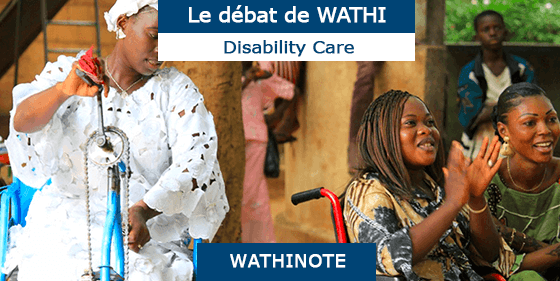

Author: Department of Economic and Social Affairs
Affiliated organization: United Nations
Type of publication: Press Article
The unique ability of sports to transcend linguistic, cultural and social barriers makes it an excellent platform for strategies of inclusion and adaptation. Furthermore, the universal popularity of sport and its physical, social and economic development benefits make it an ideal tool for fostering the inclusion and well-being of persons with disabilities.
Persons with disabilities often face societal barriers and disability evokes negative perceptions and discrimination in many societies. As a result of the stigma associated with disability, persons with disabilities are generally excluded from education, employment and community life which deprives them of opportunities essential to their social development, health and well-being. In some societies persons with disabilities are considered dependent and seen as incapable, thus fostering inactivity which often causes individuals with physical disabilities to experience restricted mobility beyond the cause of their disability.
Sport can help reduce the stigma and discrimination associated with disability because it can transform community attitudes about persons with disabilities by highlighting their skills and reducing the tendency to see the disability instead of the person. Through sport, persons without disabilities interact with persons with disabilities in a positive context forcing them to reshape assumptions about what persons with disabilities can and cannot do.
Sport changes the person with disability in an equally profound way by empowering persons with disabilities to realize their full potential and advocate for changes in society. Through sport, persons with disabilities acquire vital social skills, develop independence, and become empowered to act as agents of change. Sport teaches individuals how to communicate effectively as well as the significance of teamwork and cooperation and respect for others. Sport is also well-suited to reducing dependence and developing greater independence by helping persons with disabilities to become physically and mentally stronger. These skills can be transferred into other new arenas including employment and advocacy work further helping to build self-sufficiency.
Sport can help reduce the stigma and discrimination associated with disability because it can transform community attitudes about persons with disabilities by highlighting their skills and reducing the tendency to see the disability instead of the person
The power of sport as a transformative tool is of particular importance for women as women with disabilities often experience double discrimination on the basis of their gender and disability. It is reported that 93% of women with disabilities are not involved in sport and women comprise only one-third of athletes with disabilities in international competitions. By providing women with disabilities the opportunity to compete and demonstrate their physical ability, sport can help to reduce gender stereotypes and negative perceptions associated with women with disabilities.
Moreover, by improving the inclusion and well-being of persons with disabilities, sport can also help to advance the Millennium Development Goals (MDGs). For example, sports-based opportunities can help achieve the goal of universal primary education (MDG2) by reducing stigma preventing children with disabilities from attending school; promote gender equality (MDG3) by empowering women and girls with disabilities to acquire health information, skills, social networks, and leadership experience; and lead to increased employment and lower levels of poverty and hunger (MDG1) by helping to reduce stigma and increase self-confidence.
The UN Convention on the Rights of Persons with Disabilities is the first legally binding international instrument to address the rights of persons with disabilities and sport. Article 30 of the Convention addresses both mainstream and disability-specific sport and stipulates that “States Parties shall take appropriate measures to encourage and promote the participation, to the fullest extent possible, of persons with disabilities in mainstream sporting activities at all levels”.
It also calls upon Governments, States party to the Convention, to ensure that persons with disabilities have access to sport and recreational venues as spectators and as active participants. This also requires that children with disabilities be included in physical education within the school system “to the fullest extent possible” and enjoy equal access to “play, recreation and leisure and sporting activities”.
Les Wathinotes sont soit des résumés de publications sélectionnées par WATHI, conformes aux résumés originaux, soit des versions modifiées des résumés originaux, soit des extraits choisis par WATHI compte tenu de leur pertinence par rapport au thème du Débat. Lorsque les publications et leurs résumés ne sont disponibles qu’en français ou en anglais, WATHI se charge de la traduction des extraits choisis dans l’autre langue. Toutes les Wathinotes renvoient aux publications originales et intégrales qui ne sont pas hébergées par le site de WATHI, et sont destinées à promouvoir la lecture de ces documents, fruit du travail de recherche d’universitaires et d’experts.
The Wathinotes are either original abstracts of publications selected by WATHI, modified original summaries or publication quotes selected for their relevance for the theme of the Debate. When publications and abstracts are only available either in French or in English, the translation is done by WATHI. All the Wathinotes link to the original and integral publications that are not hosted on the WATHI website. WATHI participates to the promotion of these documents that have been written by university professors and experts.
